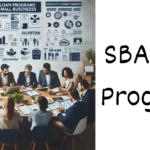Financial literacy is the ability to understand and use various financial skills, such as budgeting, saving, investing, and managing debt. It can help you achieve your financial goals, avoid common pitfalls, and prepare for the future. However, many people lack the basic knowledge and skills to make smart financial decisions. According to a 2023 survey by the Financial Industry Regulatory Authority (FINRA), only 34% of Americans are financially literate¹.
If you want to improve your financial literacy, you need to learn some essential concepts and principles, such as the time value of money, compound interest, financial planning, and risk management. You also need to apply these concepts to your own financial situation, and develop good habits and behaviors that support your financial well-being.
In this blog post, we will show you how to become financially literate in 2024, by covering the following topics:
- What is financial literacy and why is it important?
- What are the key aspects of financial literacy and how to learn them?
- What are the best resources and tools to improve your financial literacy?
- How to measure and track your financial literacy progress?
What Is Financial Literacy and Why Is It Important?
Financial literacy is the ability to understand and use various financial skills, such as personal financial management, budgeting, and investing. It also means comprehending certain financial principles and concepts, such as the time value of money, compound interest, managing debt, and financial planning.
Financial literacy is important because it can help you:
- Make informed and confident financial decisions
- Achieve your short-term and long-term financial goals
- Save money and build wealth
- Avoid debt and financial stress
- Protect yourself from fraud and scams
- Plan for retirement and emergencies
- Contribute to the economy and society
What Are the Key Aspects of Financial Literacy and How to Learn Them?
Financial literacy is a broad and complex topic that covers many aspects and skills. However, some of the most important and fundamental ones are:
- Banking: Banking is the process of managing your money through financial institutions, such as banks and credit unions. You need to learn how to open and use different types of bank accounts, such as checking, savings, and money market accounts. You also need to learn how to use various banking services and products, such as debit cards, online banking, mobile banking, and ATM machines.
- Budgeting: Budgeting is the process of creating a plan for how you will spend and save your income. You need to learn how to track your income and expenses, categorize your spending, prioritize your needs and wants, and set and achieve your financial goals. You also need to learn how to adjust your budget according to your changing circumstances and needs.
- Saving: Saving is the process of setting aside money for future use, such as emergencies, goals, or retirement. You need to learn how to save money regularly, consistently, and automatically. You also need to learn how to choose the best savings options for your needs, such as high-yield savings accounts, certificates of deposit (CDs), or money market accounts.
- Investing: Investing is the process of putting your money into assets that can grow in value over time, such as stocks, bonds, mutual funds, or real estate. Investing can help you build wealth, generate income, and achieve your long-term goals, such as retirement or education. However, investing also involves risks, so you need to do your research, diversify your portfolio, and be patient.
- Debt: Debt is the amount of money that you owe to others, such as lenders, creditors, or service providers. Debt can be useful for financing large purchases, such as a home or a car, or for covering unexpected expenses, such as medical bills or car repairs. However, debt can also be costly and stressful, especially if you borrow more than you can afford to repay. You need to learn how to manage your debt, avoid unnecessary or excessive debt, and pay off your debt as soon as possible.
- Credit: Credit is the ability to borrow money from others, based on your trustworthiness and financial history. Credit can help you access more money, lower interest rates, and better financial opportunities. However, credit can also affect your financial reputation, security, and future. You need to learn how to build and maintain a good credit score, use credit cards responsibly, and avoid credit mistakes, such as late payments, defaults, or bankruptcy.
- Financial Planning: Financial planning is the process of creating a comprehensive and long-term strategy for your financial future. Financial planning can help you align your financial actions with your financial goals, values, and priorities. It can also help you prepare for various life events and stages, such as marriage, parenthood, career change, or retirement. You need to learn how to create and follow a financial plan, review and update your plan regularly, and seek professional advice when needed.
To learn these aspects of financial literacy, you can use various methods and sources, such as:
- Reading books, articles, blogs, or newsletters on financial topics
- Listening to podcasts, audiobooks, or radio shows on financial topics
- Watching videos, webinars, or TV shows on financial topics
- Taking courses, workshops, or seminars on financial topics
- Using apps, websites, or software tools on financial topics
- Talking to friends, family, or mentors on financial topics
- Consulting a financial professional, such as a financial planner, advisor, or coach
What Are the Best Resources and Tools to Improve Your Financial Literacy?
There are many resources and tools available to help you improve your financial literacy, but some of the best ones are:
- Investopedia: Investopedia is one of the leading sources of financial information and education on the web. It offers thousands of articles, terms, FAQs, and videos that cover various financial topics, from the basics to the advanced. It also offers courses, quizzes, calculators, and simulators that help you learn and practice your financial skills.
- Khan Academy: Khan Academy is a nonprofit organization that provides free online education for anyone, anywhere. It offers courses, lessons, exercises, and videos that cover various subjects, including finance and economics. It also offers personalized learning, progress tracking, and feedback that help you learn at your own pace and level.
- Mint: Mint is a free online and mobile app that helps you manage your money and budget. It allows you to link your bank accounts, credit cards, bills, and investments, and see your financial situation in one place. It also helps you create and follow a budget, track your spending, save money, and achieve your financial goals.
- NerdWallet: NerdWallet is a website and app that helps you make smart financial decisions. It offers expert advice, reviews, comparisons, and tools that help you choose the best financial products and services for your needs, such as credit cards, bank accounts, loans, insurance, and investments. It also offers tips, guides, and calculators that help you improve your financial literacy and well-being.
- The Motley Fool: The Motley Fool is a multimedia financial company that helps you invest better. It offers articles, podcasts, newsletters, books, and services that provide financial news, analysis, recommendations, and education. It also offers a community of investors, advisors, and experts that help you learn and grow your wealth.

How to Measure and Track Your Financial Literacy Progress?
To measure and track your financial literacy progress, you can use various methods and indicators, such as:
- Taking financial literacy tests or quizzes, such as the National Financial Capability Test, the Financial Literacy Quiz, or the Financial Fitness Quiz. These tests or quizzes can help you assess your current level of financial knowledge and skills, identify your strengths and weaknesses, and monitor your improvement over time.
- Setting financial literacy goals and objectives, such as learning a new financial concept, skill, or topic, completing a financial course or book, or achieving a financial milestone or outcome. These goals and objectives can help you focus your learning efforts, motivate your learning actions, and evaluate your learning results.
- Tracking financial literacy metrics and outcomes, such as your net worth, income, expenses, savings, investments, debt, credit score, or financial plan. These metrics and outcomes can help you quantify your financial situation, performance, and progress, and see the impact of your financial literacy on your financial well-being.
Conclusion
Financial literacy is the ability to understand and use various financial skills, such as budgeting, saving, investing, and managing debt. It can help you make informed and confident financial decisions, achieve your financial goals, avoid common pitfalls, and prepare for the future.
To become financially literate in 2024, you need to learn some essential concepts and principles, such as the time value of money, compound interest, financial planning, and risk management. You also need to apply these concepts to your own financial situation, and develop good habits and behaviors that support your financial well-being.
You can use various methods and sources to learn and improve your financial literacy, such as reading, listening, watching, taking, using, talking, or consulting..









